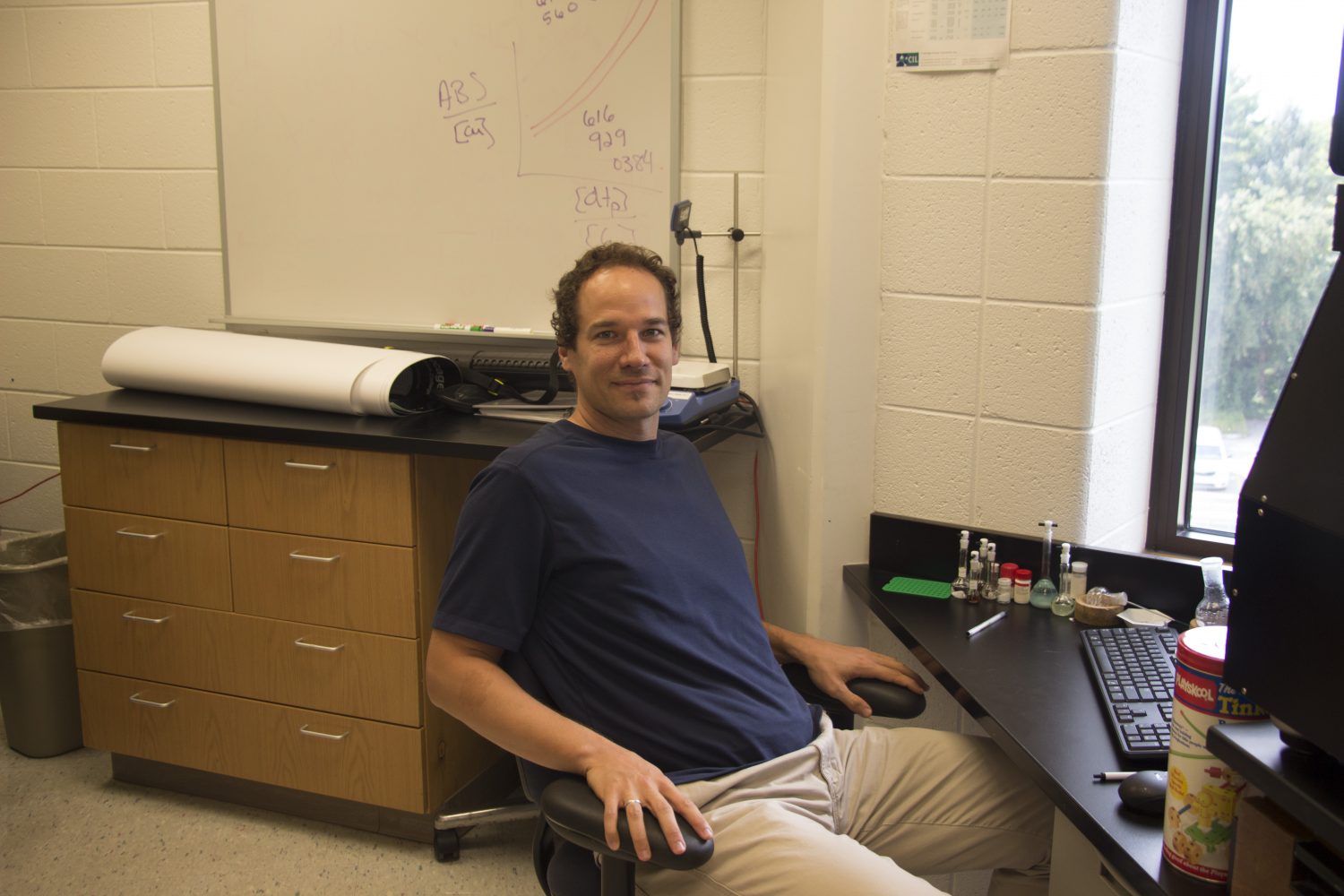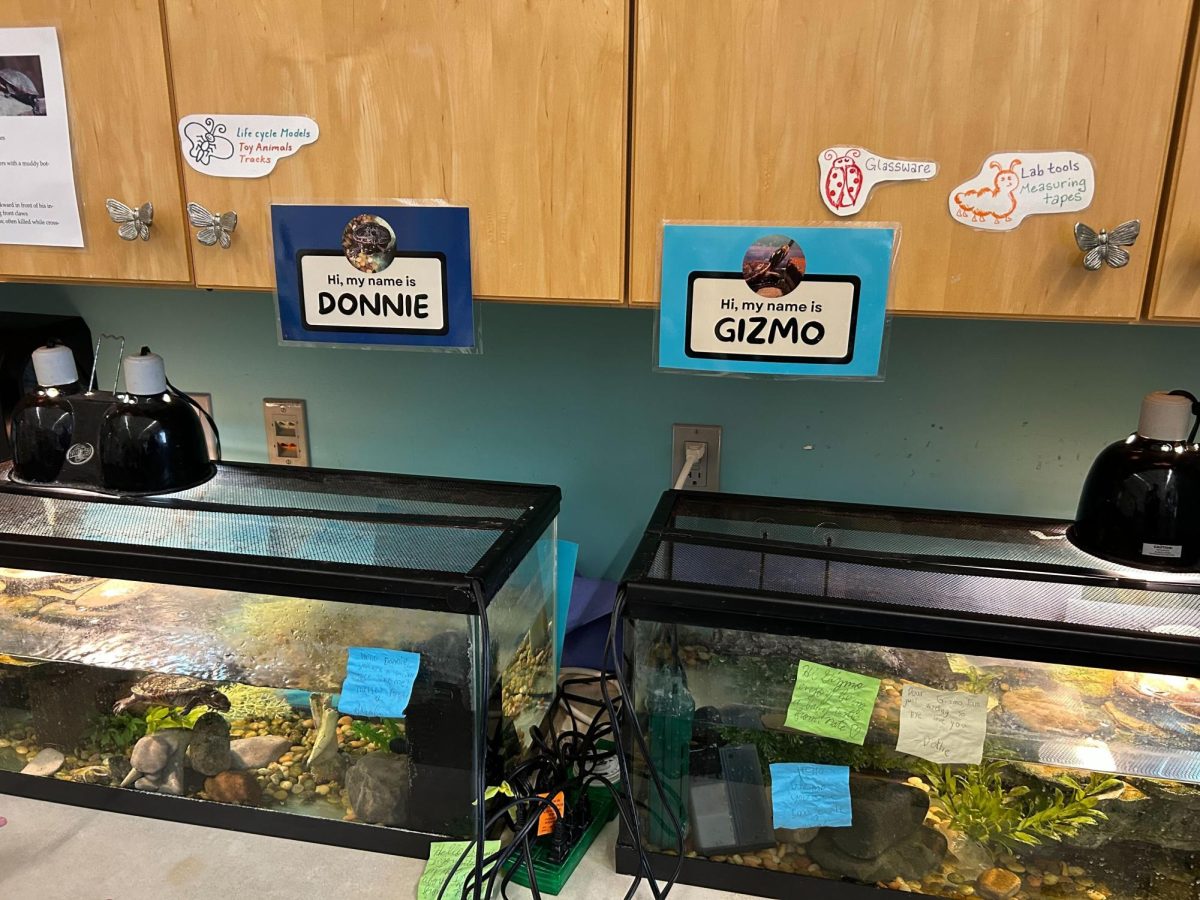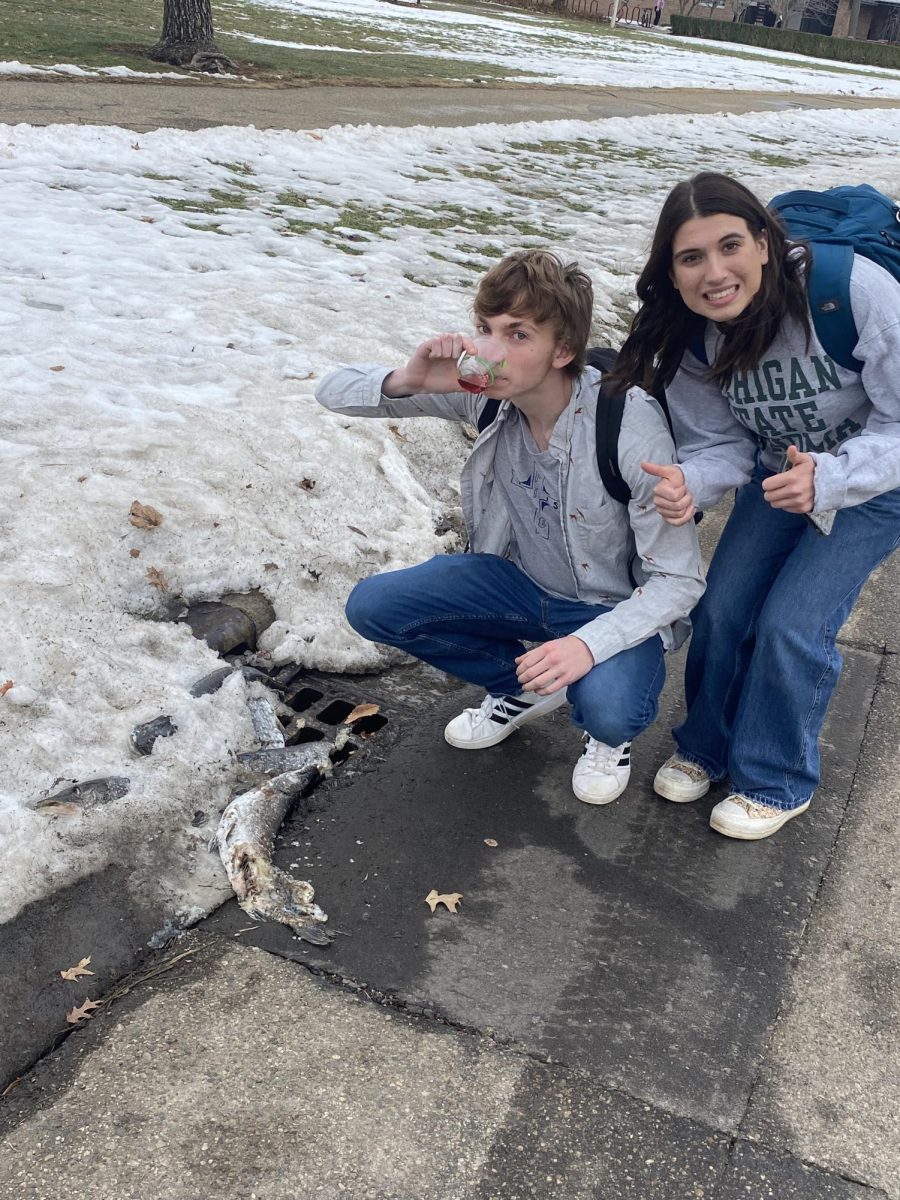Calvin chemistry professor Douglas Vander Griend was named a 2014 Henry Dreyfus Teacher-Scholar last month for his work in supramolecular chemistry, a field focused on “nanosize range between engineering and chemistry.” The award is heavily based on involvement with undergraduate research and includes a $60,000 grant for continuing that research.
Vander Griend intends to use the grant to build on previous research in supramolecular chemistry with the help of students. Vander Griend studies the interactions between molecules — he calls them “molecular tinkertoys” — and the practical applications of their groupings. Even Vander Griend’s office is testament to his love of modeling: a large Lego poster holds a place of honor above his window and structural models hang from his ceiling.
Vander Griend is the first Calvin College professor to receive the Dreyfus award, which was established in 1946, according to the Camille and Henry Dreyfus Foundation. The Foundation was founded by Camille Dreyfus in memory of his brother, Henry. The Teacher-Scholar Award is granted in recognition of commitment to research and teaching in the field of chemistry.
The Foundation’s mission is to “identify and address needs and opportunities in the chemical sciences.” Vander Griend’s goals for his research and that of his students run in the same vein, focusing on the use of computers and mathematics in molecular studies.
“The need is to characterize these complicated solutions; all these things work in concert. The opportunity is applying computer-driven math to put these things together,” Vander Griend explained. “Our research is ultimately to determine how to build things in this size range, where groups of molecules are working in concert to do whatever cool things they do. The beauty of it is that you can get supramolecular structures just from mixing simple molecules together in solution.”
The National Academy of Sciences of the United States of America describes a supramolecule as “an assembly of molecules that is held together by relatively weak intramolecular bonds.” Supramolecules are prevalent in natural systems, and are of significant interest in many chemical and biological fields.
“It gets really messy,” Vander Griend said. “It becomes a big cocktail of things. That’s where we use high-power math.” Vander Griend has developed a program, Sivvu, for just this purpose. His immediate goal is working to make this program available to researchers online, and the Dreyfus research grant will allow him and his students to further explore this and other projects in molecular technologies.
Vander Griend’s work in this field spans twelve years at Calvin College and builds every summer through his work with undergraduate research students.
“This is our niche now,” he said. “This is what we do. We’re pushing the limits of the modeling method itself.”
Holland Sentinel reports that Vander Griend is one of seven faculty members at undergraduate institutions across the United States to receive the Dreyfus award this year. His name was submitted for consideration by Calvin College’s chemistry department.









